Camping and outdoor travel offer a unique chance to connect with nature, escape the hustle of daily life, and explore the wonders of the natural world. Whether setting up a tent in a secluded forest, hiking through mountain trails, or simply enjoying the tranquility of the great outdoors, these experiences can be both rejuvenating and adventurous. This guide provides essential tips and insights for making the most of your camping and outdoor adventures, ensuring a memorable and safe experience.
1. Choosing the Right Campsite
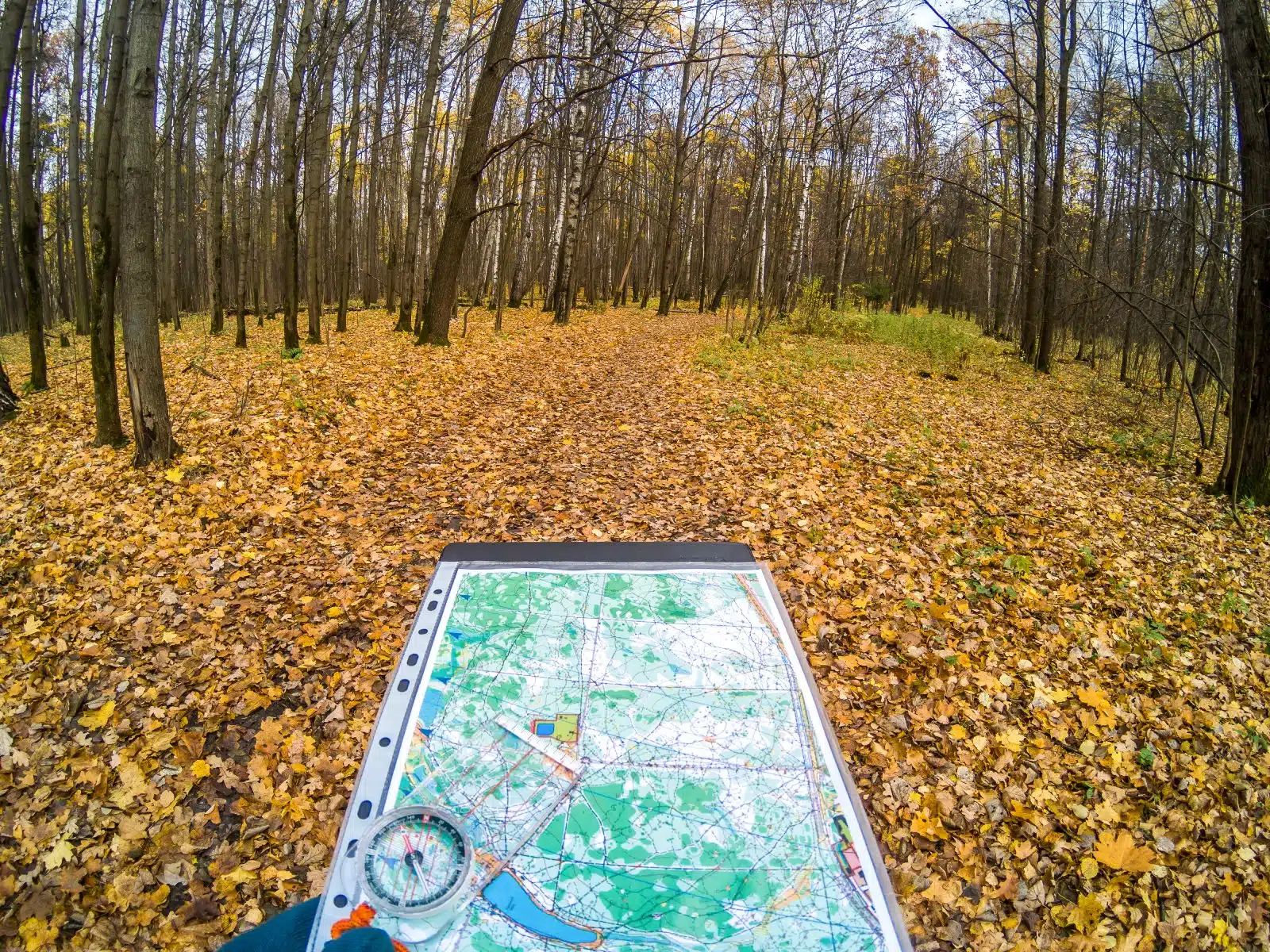
Image Credit: Shutterstock / AdelCorp
When selecting your campsite, consider it an art form that balances natural beauty, privacy, and practicality. The ideal site strikes a harmony between being close enough to water sources for convenience yet far enough to ensure safety and preserve water purity. Terrain plays a crucial role; look for flat ground to ensure comfort when sleeping and setting up your tent. Be mindful of the environment – avoid areas with delicate vegetation or animal habitats. Remember, your campsite is more than a temporary home; it’s a gateway to exploring the surrounding environment. Each site offers a unique window into the natural world, whether in a forest clearing, perched near a mountain stream, or under a desert sky. Consider factors like potential weather conditions, privacy from other campers, and accessibility. A well-chosen campsite not only enhances your camping experience but also ensures a minimal impact on the natural surroundings, allowing you to immerse yourself fully in the peace and beauty of the outdoors.
Insider’s Tip
Opt for established campsites to minimize environmental impact.
2. Packing Essentials for Camping
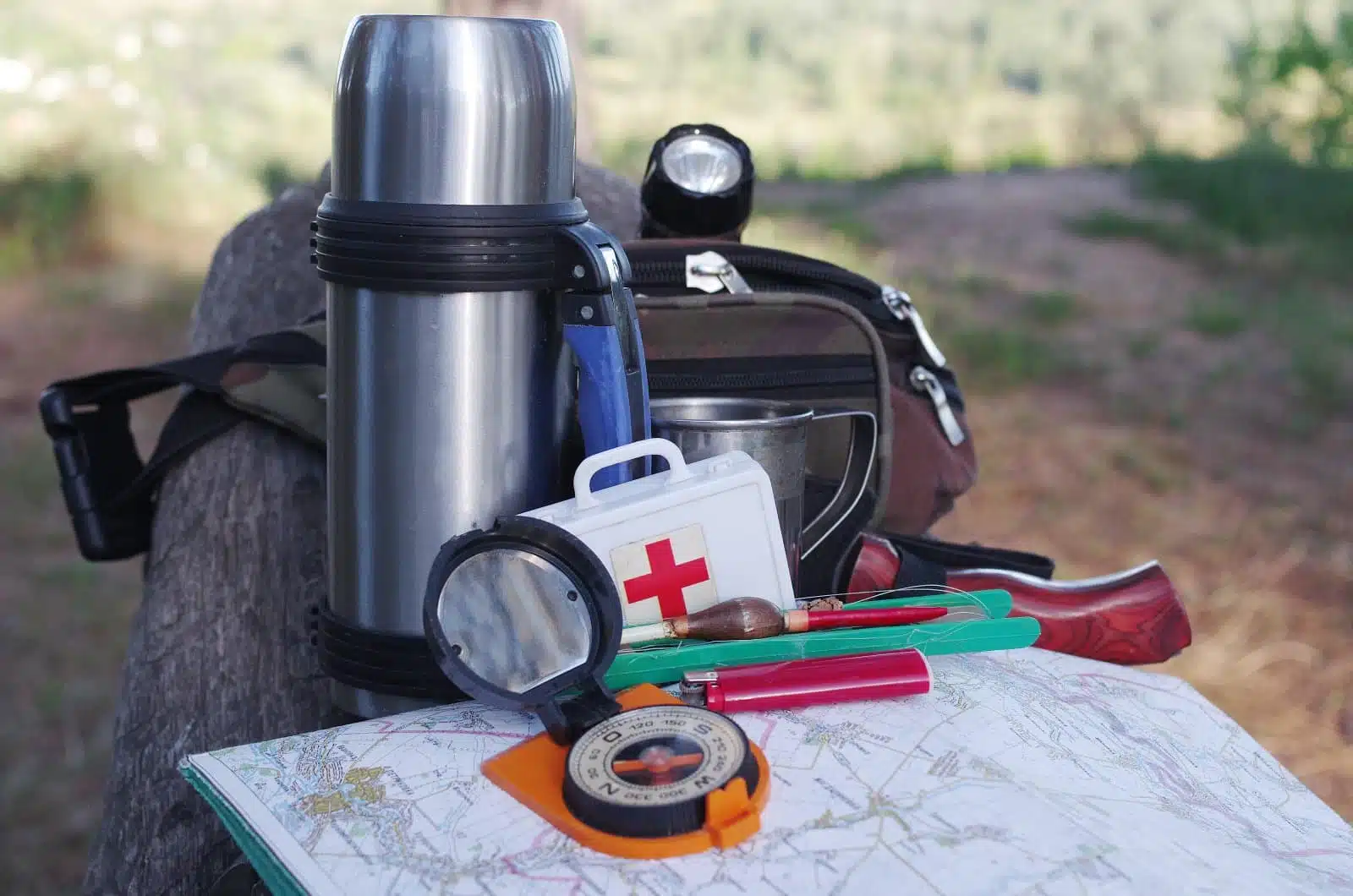
Image Credit: Shutterstock / Zheltyshev
Packing for a camping trip is a balancing act between preparedness and efficiency. The key is to bring all the essentials without overburdening yourself. Your tent should be your sanctuary, sturdy enough to handle weather conditions yet light enough for transport. A sleeping bag appropriate for the climate is crucial for a comfortable night’s rest. Cooking outdoors can be a joy, so pack a reliable cooking system and enough food and water supplies for your entire trip. Don’t forget navigation tools like maps, a compass, and a comprehensive first-aid emergency kit. Your clothing should be versatile, suited to the day’s warmth and the night’s chill. Packing is about anticipating your needs in the wilderness, preparing for the unexpected, and ensuring that your time outdoors is enjoyable and safe. Remember, every item you pack should have a purpose, contributing to your comfort, safety, or enjoyment during your adventure.
Insider’s Tip
Use a checklist to ensure you don’t forget essential items.
3. Campfire Safety and Etiquette
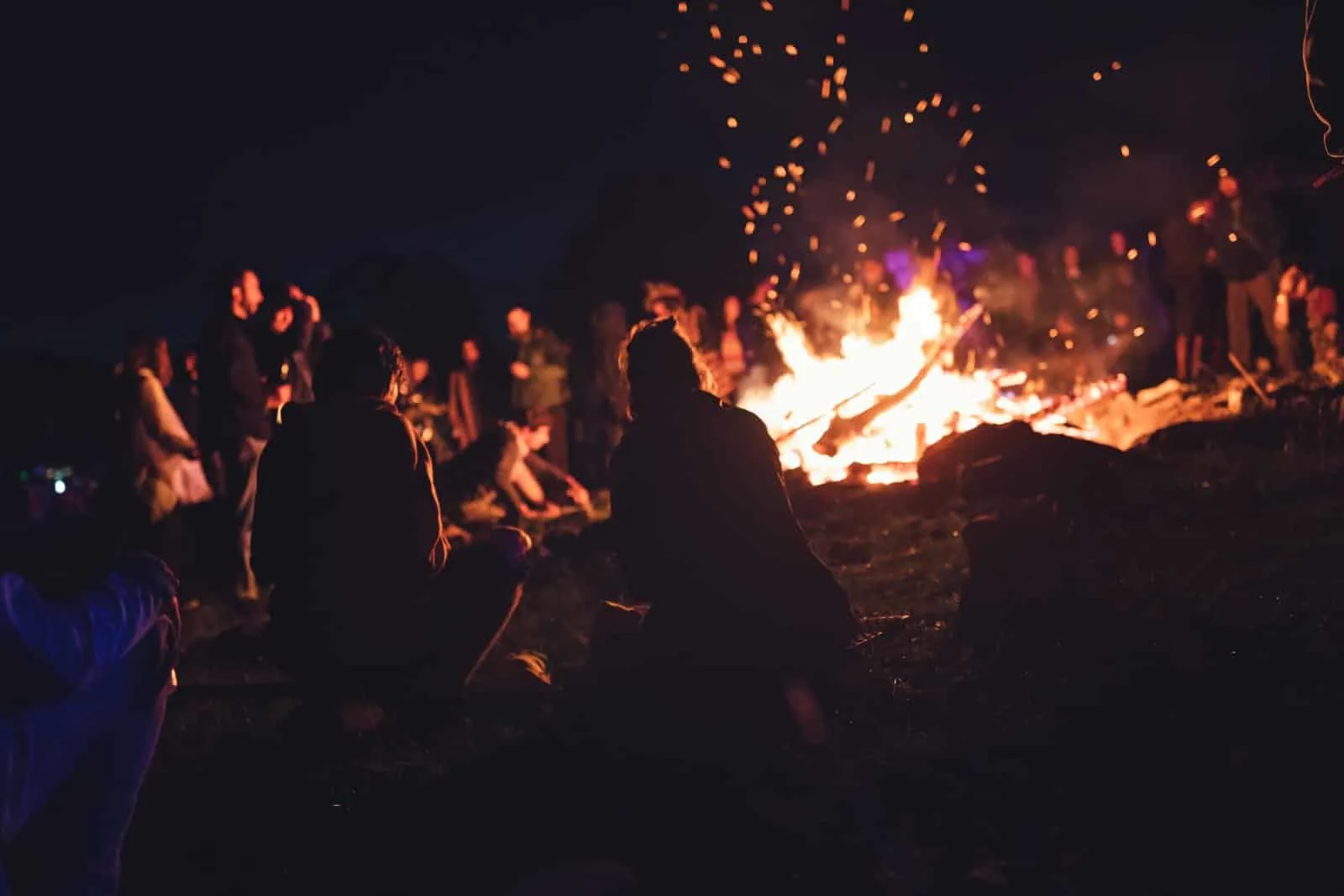
Image Credit: Shutterstock / MAD.vertise
The glow of a campfire is the heart of many camping experiences, but it comes with significant responsibilities. Firstly, always check the local fire regulations before you strike a match. If campfires are allowed, use existing fire rings and keep your fire small to minimize impact. Gathering fallen wood from the ground rather than cutting from trees helps preserve the natural environment. Always have water or a shovel nearby to extinguish your fire completely, leaving no trace of your presence. Beyond safety, campfire etiquette is about respect for the environment, wildlife, and fellow campers. Keep the noise down, especially at night, and ensure your fire doesn’t disturb wildlife or pose a risk to the area. A campfire is a source of warmth, a means to cook food and a communal space for sharing stories and creating memories, all while respecting the delicate balance of the natural world around you.
Insider’s Tip
Learn and practice the “Leave No Trace” principles.
4. Wildlife Safety and Respect
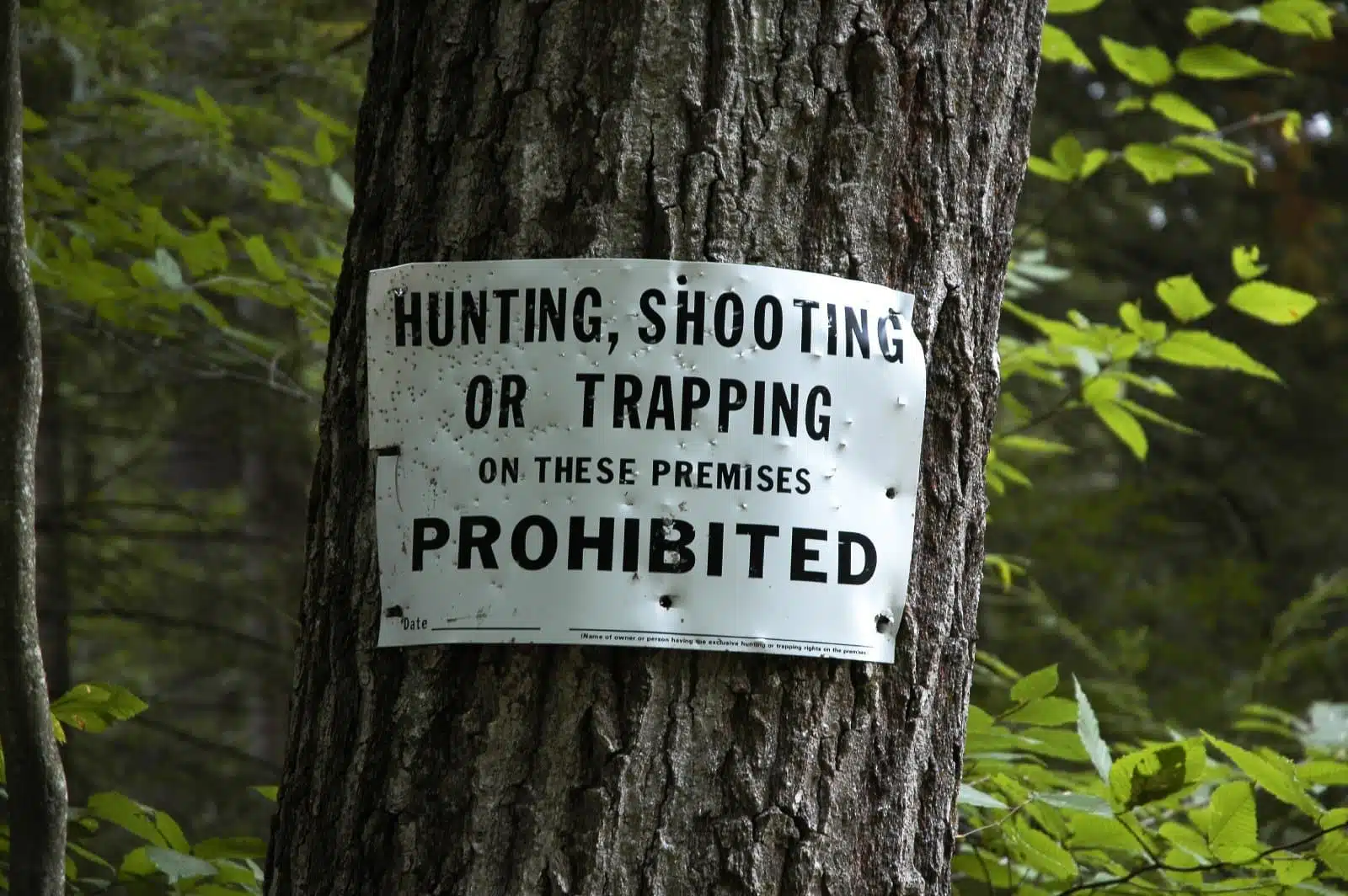
Image Credit: Shutterstock / Jason X Pacheco
When camping, you’re a guest in the home of countless wildlife species, and respecting their space is crucial. Educate yourself about the wildlife you might encounter and how to coexist safely. This includes securing your food to avoid attracting animals to your campsite and understanding the appropriate behavior if you encounter wildlife. Observation is a joy, but it should always be from a safe and respectful distance – for your safety and the well-being of the animals. In bear country, for instance, bear-proof containers are essential for storing food, and knowing how to use bear spray can be vital. Always follow the guidelines provided by local authorities or park services. Remember, respecting wildlife is about preserving the natural order and ensuring that these wild creatures thrive in their natural habitat, unaltered by human interference.
Insider’s Tip
Carry bear spray in areas known for bear activity.
5. Hiking and Trail Safety
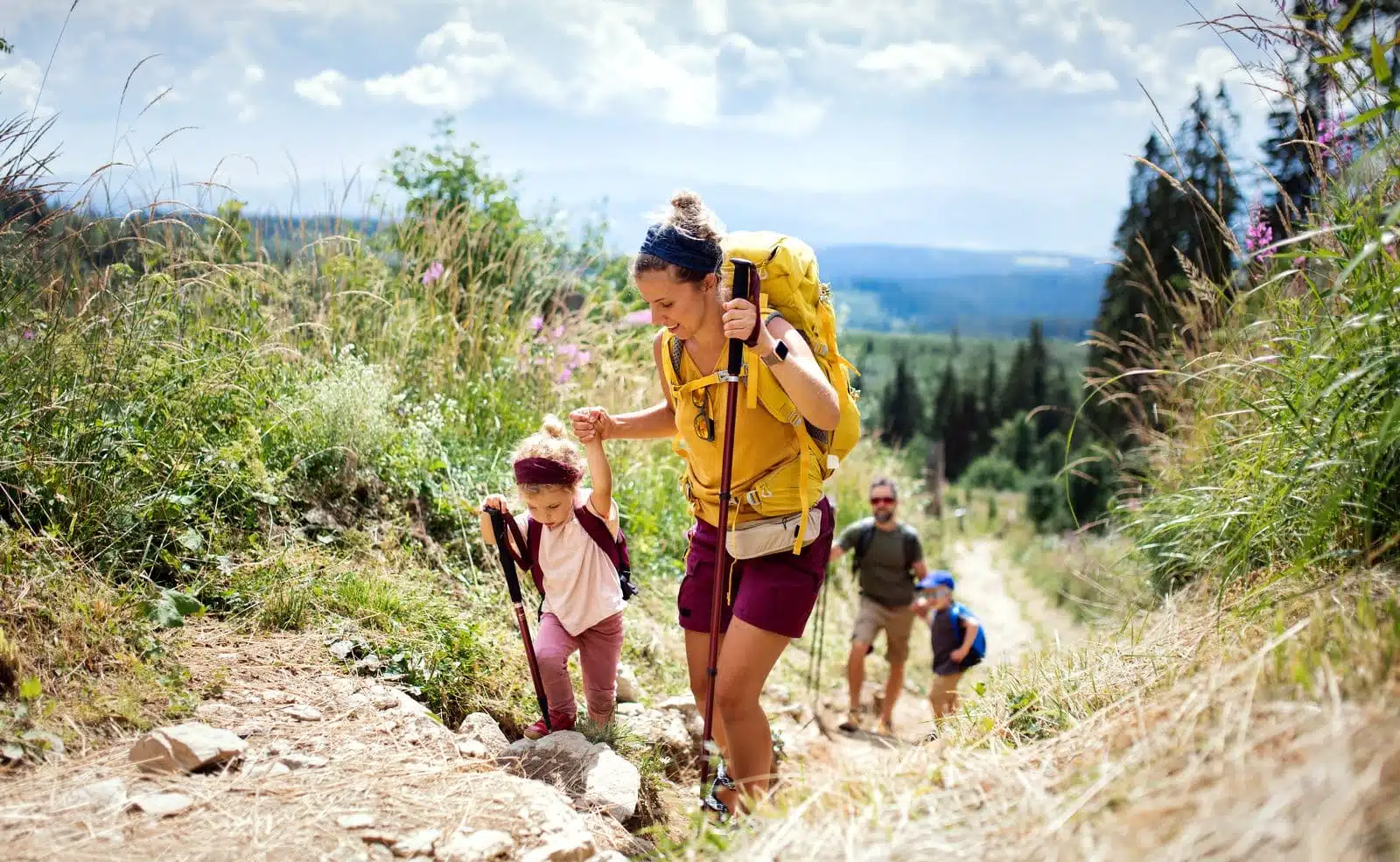
Image Credit: Shutterstock / Ground Picture
Hiking is an integral part of the outdoor experience, offering a way to explore and appreciate the natural world. Before setting out, select a trail that aligns with your fitness level and experience. Always let someone know your plans, including your intended route and expected return time. Your backpack should contain essentials like ample water, snacks for energy, a reliable map, and a first-aid kit. Pay attention to the weather forecasts and be prepared for changes. Starting early is often wise, allowing you to enjoy the morning’s peace and ensuring you’re not caught by nightfall. Staying on marked trails is safer and a matter of conservation, protecting both you and the environment. Hiking is a journey through nature, an opportunity to connect with the environment, challenge yourself, and discover the wonders of the natural world.
Insider’s Tip
Always stay on marked trails to protect both yourself and the environment.
6. Weather Preparedness

Image Credit: Shutterstock / T. Schneider
Preparing for the weather is crucial in ensuring a safe and enjoyable outdoor experience. The unpredictability of weather, especially in wilderness areas, demands vigilance and flexibility. Before your trip, check the weather forecast and prepare for various conditions. Your clothing should be adaptable, including layers that can handle temperature fluctuations and rain gear to stay dry. In severe weather like thunderstorms or high winds, know where to find shelter and how to protect yourself. For instance, avoid high ground and isolated trees during lightning storms. Understanding and respecting the weather is integral to outdoor safety. It’s about being prepared for whatever conditions nature may present, ensuring that your time outdoors is safe and enjoyable, no matter what the skies may bring.
Insider’s Tip
Understand the signs of hypothermia and heat exhaustion.
7. Leave No Trace Principles
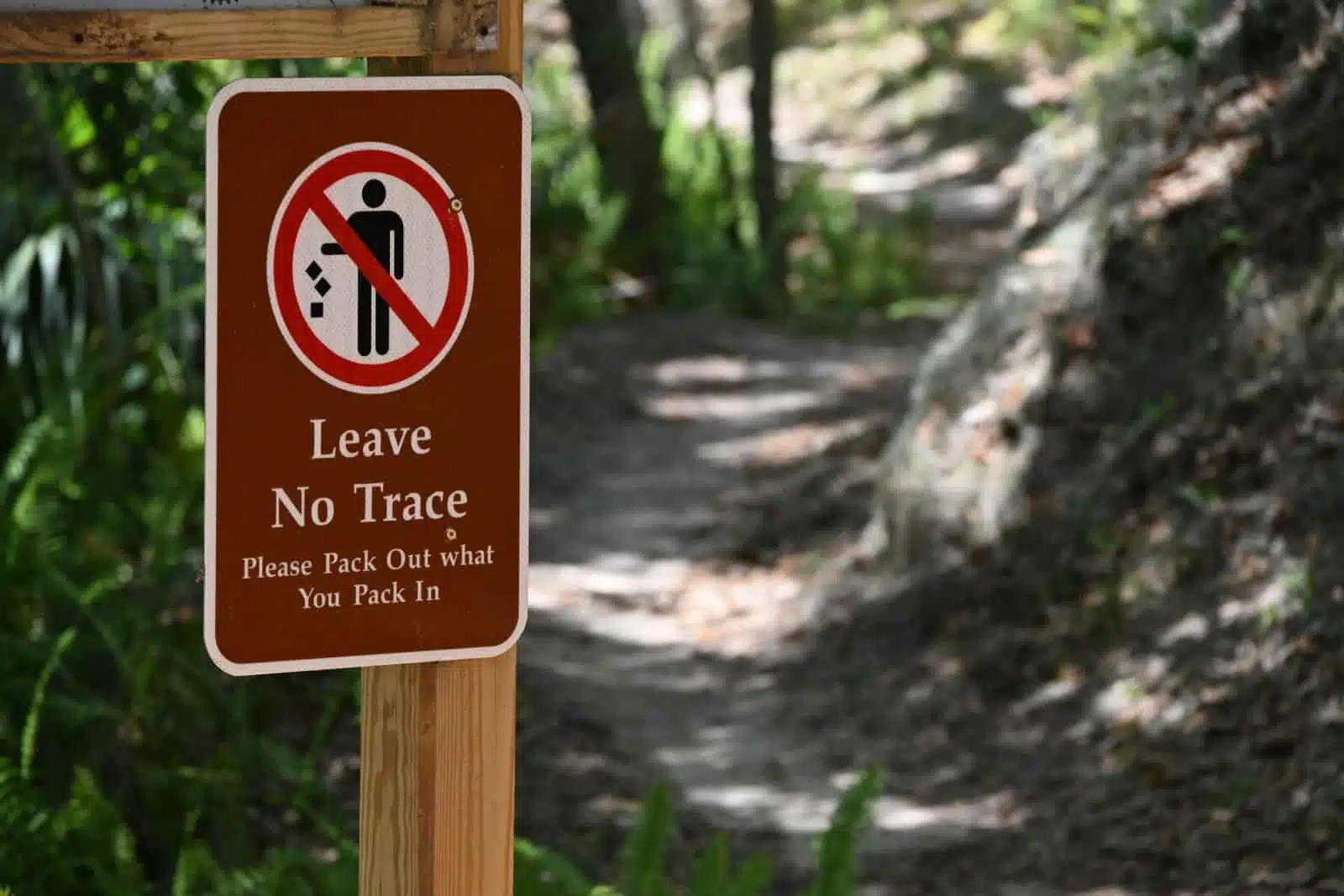
Image Credit: Shutterstock / Chris J Ferro
Adhering to Leave No Trace principles is not just a recommendation; it’s an essential part of responsible outdoor activity. These principles guide you to minimize your impact on the natural environment. This means everything you bring with you should leave with you, including all trash and leftovers. Disposing waste properly, whether human waste or food scraps, is vital to preserving the ecosystem. Leaving what you find ensures that natural features and artifacts remain undisturbed for future adventurers to enjoy. Minimizing campfire impacts, respecting wildlife, and being considerate of other visitors all contribute to a sustainable outdoor experience. Practicing Leave No Trace is a commitment to conservation and stewardship, ensuring that the natural beauty and integrity of the outdoors remain intact for generations to come.
Insider’s Tip
Use biodegradable soap and avoid washing directly in water bodies.
8. Navigating and Map Reading Skills
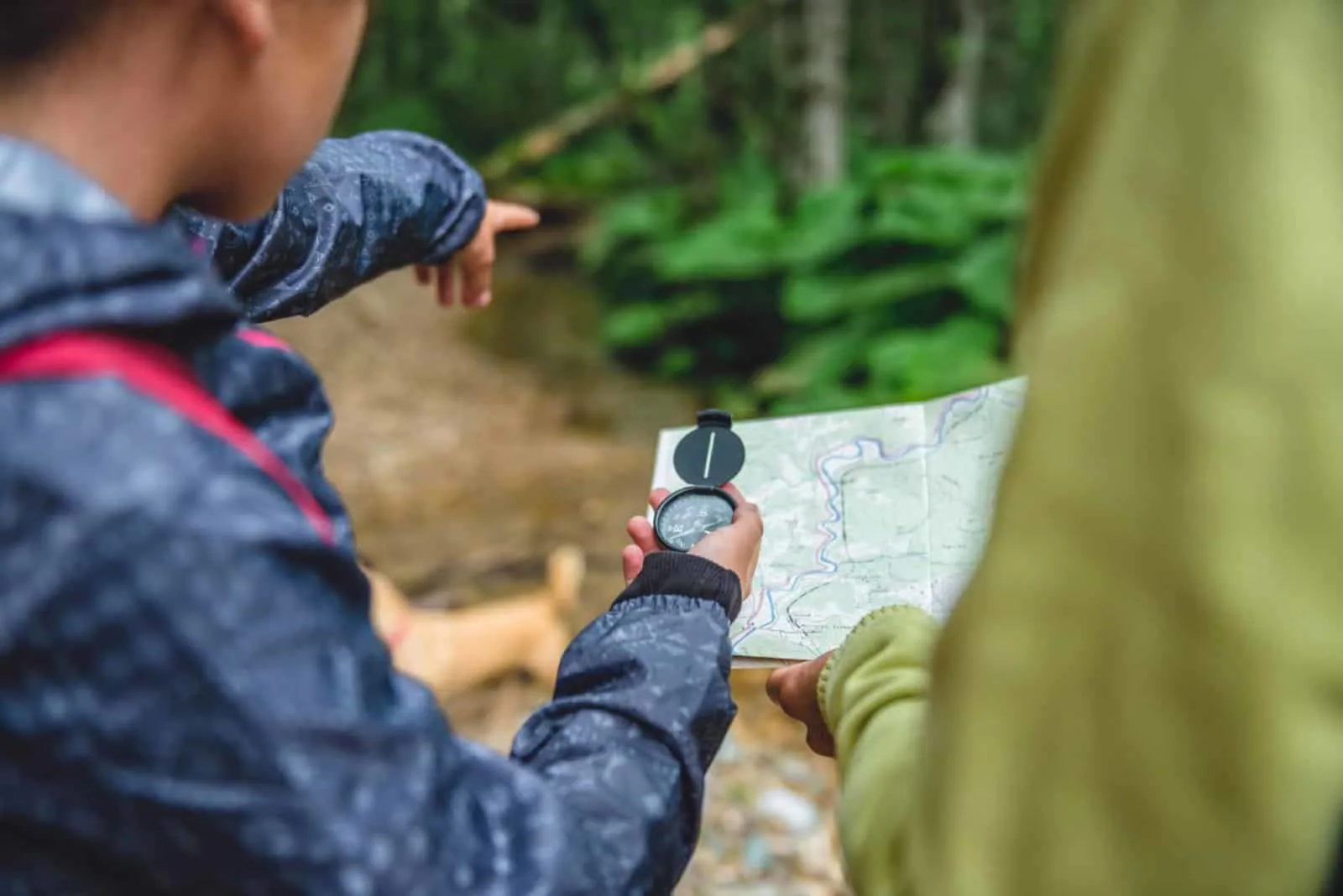
Image Credit: Shutterstock / Zivica Kerkez
In an age where digital navigation is ubiquitous, the traditional skills of map reading and compass navigation hold significant value in the outdoors. These fundamental tools can be indispensable in areas without cellular service or when technology fails. Before your trip, invest time learning how to read topographical maps and navigate using a compass. These skills enhance your safety and enrich your outdoor experience, giving you a deeper understanding of the landscape and a greater sense of self-reliance. Practice in familiar territory before relying on these skills in remote areas. Navigating the old-fashioned way is not only a helpful backup; it’s a way to connect more intimately with the land, allowing you to chart your course with confidence and self-sufficiency.
Insider’s Tip
Always carry a physical map and compass as backups.
9. Hydration and Food Management
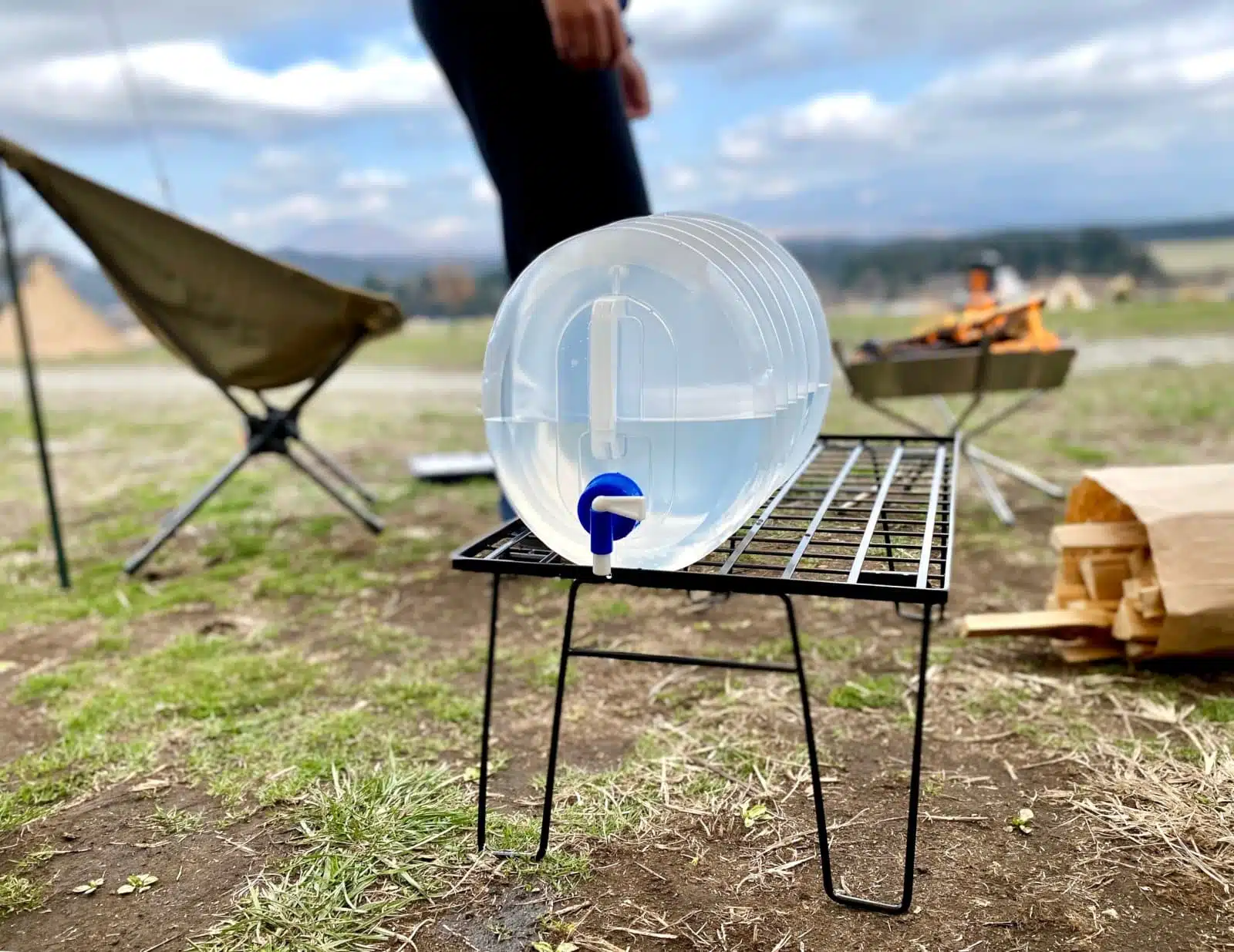
Image Credit: Shutterstock / candy candy
Proper hydration and food management are key to maintaining energy and health during outdoor activities. Plan your water strategy meticulously; carry sufficient water, know where you can safely refill, and have the means to purify water from natural sources. When it comes to food, opt for nutritious, easy-to-prepare, and non-perishable meals. Packing food efficiently means considering weight, waste, and ease of preparation. Proper food storage is crucial in areas with wildlife to avoid attracting animals to your site. This protects you and your food and keeps wildlife safe from human-related dangers. Managing your food and water ensures that your time outdoors is energized, enjoyable, and harmonious with the natural environment.
Insider’s Tip
Use bear-proof containers in areas with active bear populations.
10. Camping Gear and Technology
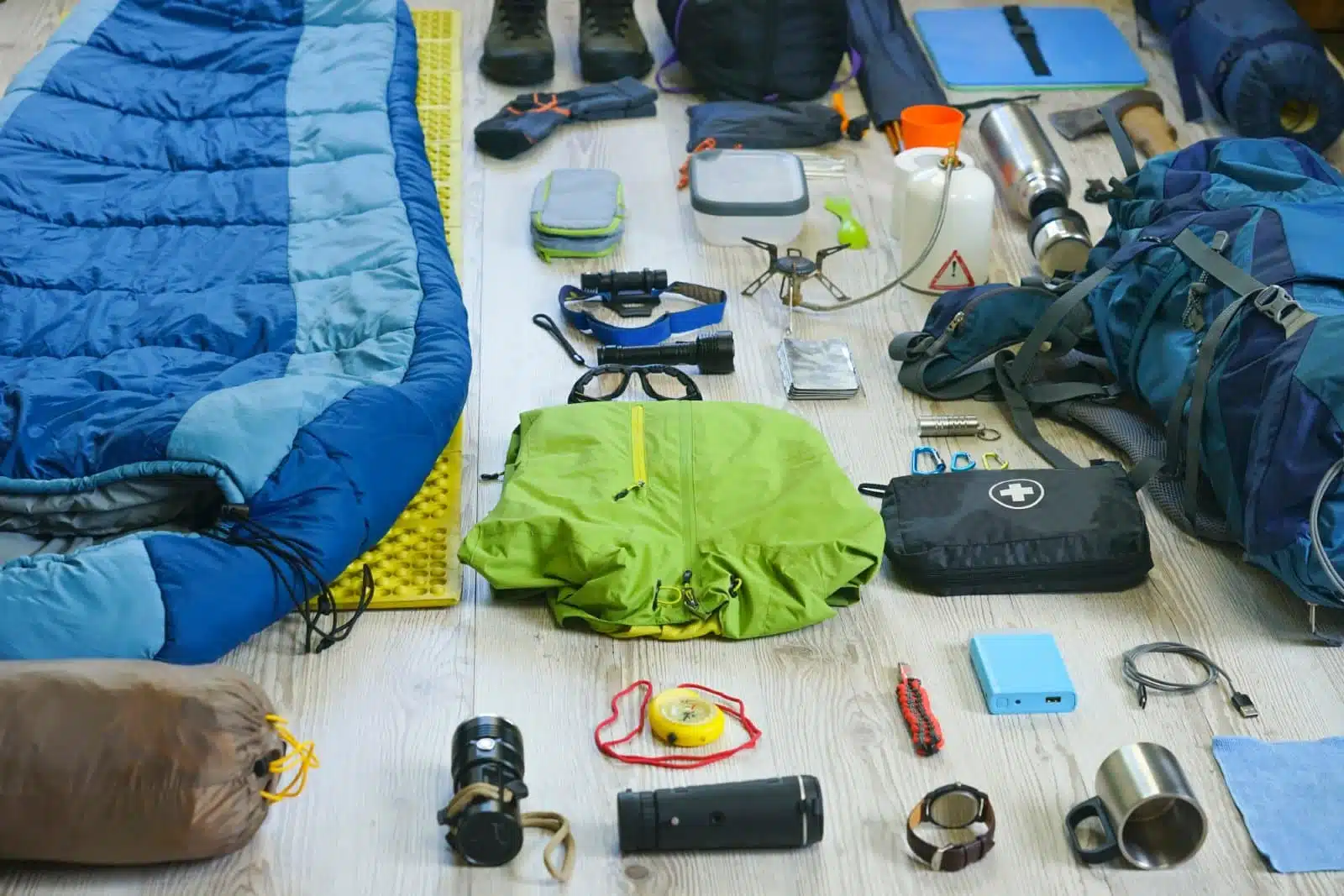
Image Credit: Shutterstock / Sergey Pristupa
Selecting the right camping gear and technology can significantly enhance your outdoor experience. Your gear should be reliable, suited to the environment, and as lightweight as possible. A good quality tent, sleeping bag, and appropriate clothing are essentials. Modern technology, like GPS devices, solar chargers, and water purifiers, can add convenience and safety. However, it’s crucial to remember that technology should not replace basic outdoor skills. Being familiar with your gear before setting out is essential –testing your tent, breaking in your hiking boots, and understanding how to use any tech gadgets you bring along. The right gear and technology can transform a good camping trip into a great one, offering comfort, safety, and the freedom to confidently explore the outdoors.
Insider’s Tip
Test new gear before your trip to ensure it works correctly.
11. Solo Camping Considerations
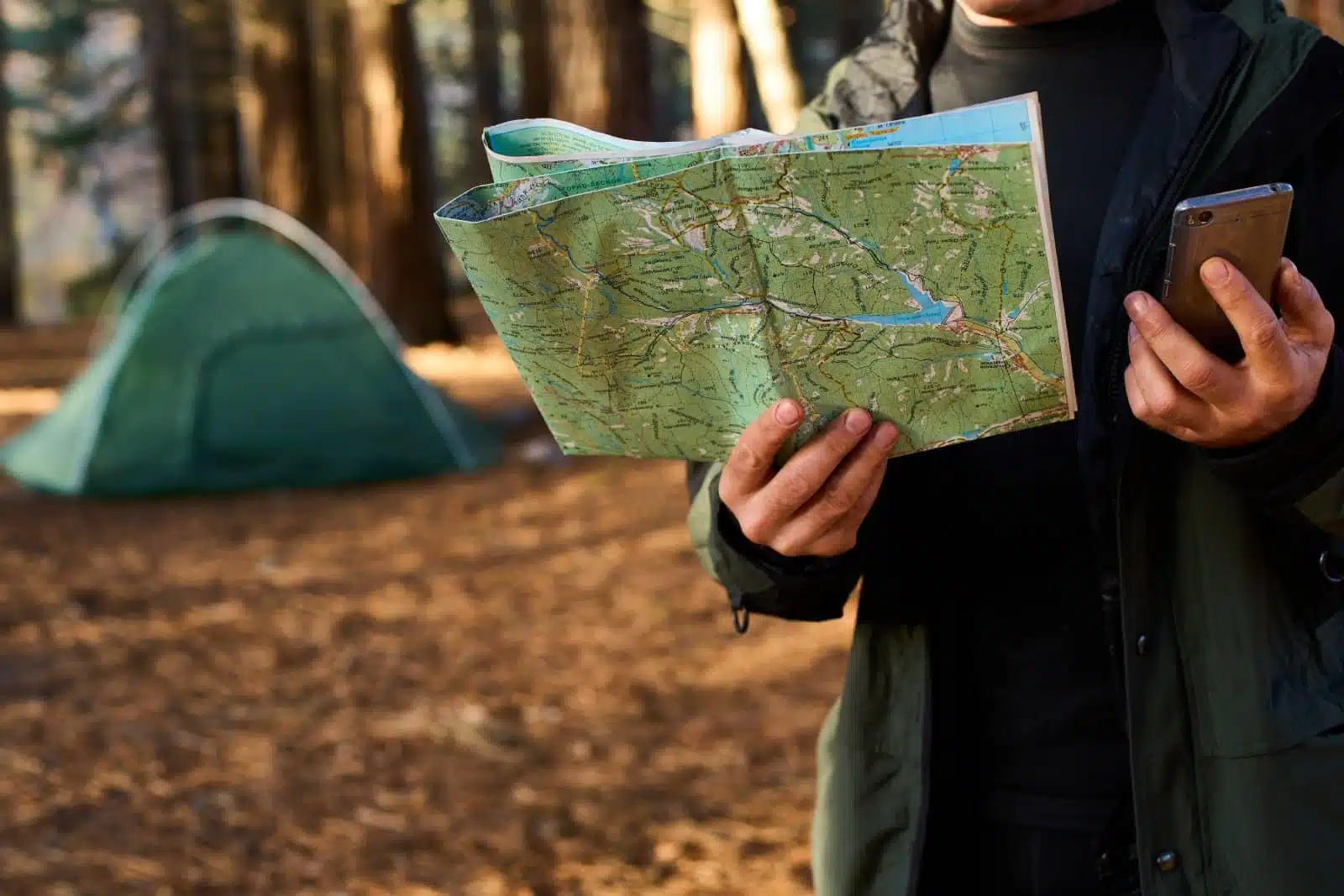
Image Credit: Shutterstock / Artie Medvedev
Solo camping is an enriching experience that brings a unique set of challenges and rewards. It demands a higher level of self-reliance and preparedness. When planning a solo trip, you must leave a detailed plan with someone you trust, including your destination, routes, and expected return time. Choose a campsite that’s safe and not too remote for your first few solo adventures. Pack emergency supplies, including a first-aid kit, extra food, and a means of communication, like a satellite phone or personal locator beacon. Familiarize yourself with basic survival skills and trust your instincts. Solo camping offers a profound opportunity for solitude, reflection, and connection with nature. It allows you to set your own pace, follow your interests, and enjoy the quiet moments that group camping often lacks. However, the key is always to prioritize your safety, making informed decisions that respect both your capabilities and the unpredictability of nature.
Insider’s Tip
Carry a personal locator beacon for emergencies.
12. Environmental Awareness and Conservation
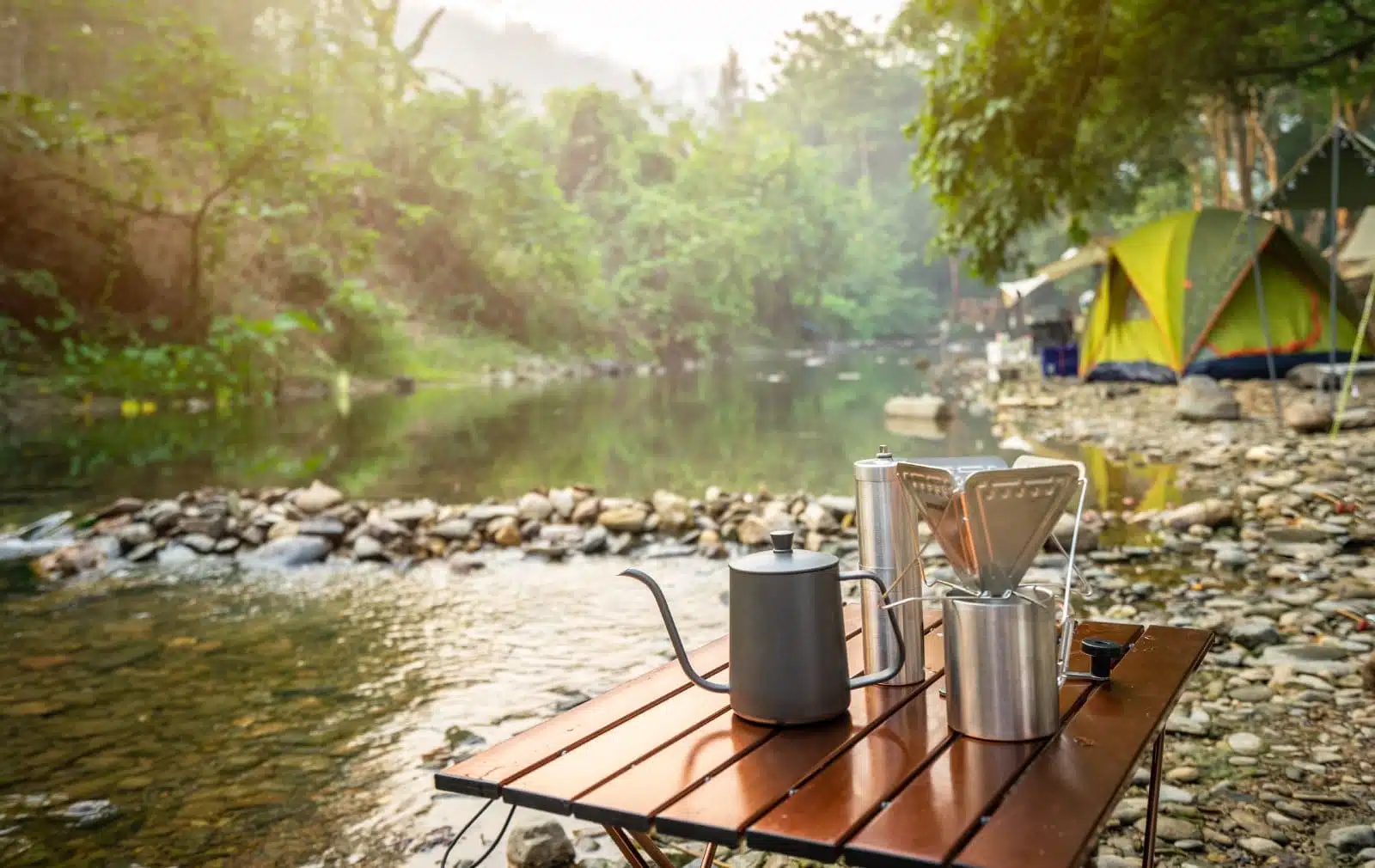
Image Credit: Shutterstock / Mr.Moo
As an outdoor enthusiast, embracing environmental awareness and participating in conservation efforts is crucial. Understanding the impact of your presence in natural settings guides you to make responsible choices. Utilize eco-friendly products, from biodegradable soaps to solar-powered devices. Avoid disturbing the natural habitat of wildlife and adhere to designated trails to prevent soil erosion and protect plant life. You may find opportunities to contribute to conservation efforts in some areas, such as trail maintenance or clean-up projects. Supporting these initiatives enhances your outdoor experience and contributes to preserving these environments for future enjoyment. Being an advocate for the environment means being an active participant in its preservation, ensuring that the beauty and diversity of the natural world are maintained and respected.
Insider’s Tip
Join or donate to conservation efforts in the areas you visit.
The Bottom Line
Your journey into the great outdoors is an opportunity to explore, learn, and grow. Each trip brings its challenges and rewards, and being prepared is the key to making the most of your experience. Respect for nature, mindfulness of your impact, and a spirit of adventure are essential. Whether you’re gazing at the stars from your tent, conquering a challenging trail, or simply enjoying the peace of the wilderness, remember that these experiences are a privilege. Embrace the adventure, cherish the memories, and always leave the natural world better than you found it. Happy camping and exploring!
More From The Green Voyage
12 Best Practices for Sustainable Travel in 2024 – How to Travel With Minimal Environmental Impact
Unlocking Hotel Perks – A Traveler’s Guide to Maximizing Hotel Reward Programs for Optimal Benefits
Travel Hacks for Frequent Flyers – 6 Tips and Tricks to Make the Best of Air Travel
The post 12 Tips To Camping and Outdoor Adventures 2024 first appeared on The Green Voyage.
Featured Image Credit: Shutterstock / Pixel-Shot.
Tips for Trip Success
Book Your Flight
Find an inexpensive flight by using Kayak, a favorite of ours because it regularly returns less expensive flight options from a variety of airlines.
Book Your Hotel or Special Accommodation
We are big fans of Booking.com. We like their review system and photos. If we want to see more reviews and additional booking options, we go to Expedia.
You Need Travel Insurance!
Good travel insurance means having total peace of mind. Travel insurance protects you when your medical insurance often will not and better than what you get from your credit card. It will provide comprehensive coverage should you need medical treatment or return to the United States, compensation for trip interruption, baggage loss, and other situations.Find the Perfect Insurance Plan for Your Trip
